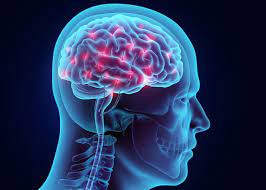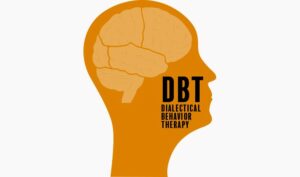Addiction, a complex interplay of neurological, psychological, and social factors, has been an enduring challenge for individuals, families, and societies worldwide. Over the decades, numerous therapies have emerged, each offering a unique approach and promising hope for those seeking a path out of the clutches of addiction. This guide aims to shed light on the most effective and time-tested best therapy for addiction, and the benefits you can expect. By understanding the nuances of these treatments, we can empower individuals to make informed choices on their road to recovery.
Contents
- 1 Understanding Addiction
- 2 Examples Of Best Therapy For Addiction
- 2.1 Cognitive Behavioral Therapy (CBT)
- 2.2 Medication-Assisted Treatment (MAT)
- 2.3 12-Step Programs
- 2.4 Motivational Interviewing
- 2.5 Contingency Management
- 2.6 Dialectical Behavior Therapy (DBT)
- 2.7 Biofeedback and Neurofeedback
- 2.8 Mindfulness and Meditation
- 2.9 Holistic Therapies
- 2.10 Virtual Reality (VR) Therapy
- 3 Benefits Of Choosing The Best Therapy For Addiction
- 4 Conclusion
Understanding Addiction
 Addiction is a multifaceted and complex condition characterized by compulsive behaviors and an overwhelming desire to seek. And consume a substance or engage in an activity, even when it causes harm. At its core, addiction involves profound changes in the brain’s reward, motivation, and memory systems. This is driven by repeated exposure to addictive substances or behaviors. These neurological changes can lead to increased tolerance. That means more of the substance or behavior is needed to achieve the same effect. And withdrawal symptoms when the substance or behavior is not accessed.
Addiction is a multifaceted and complex condition characterized by compulsive behaviors and an overwhelming desire to seek. And consume a substance or engage in an activity, even when it causes harm. At its core, addiction involves profound changes in the brain’s reward, motivation, and memory systems. This is driven by repeated exposure to addictive substances or behaviors. These neurological changes can lead to increased tolerance. That means more of the substance or behavior is needed to achieve the same effect. And withdrawal symptoms when the substance or behavior is not accessed.
Psychologically, addiction often coexists with other mental health issues, such as depression, anxiety, or trauma, creating a reinforcing cycle. Environmental factors, including peer pressure, family dynamics, and socio-economic status, play crucial roles in its onset and persistence. Moreover, genetics can predispose certain individuals to addiction. Ultimately, understanding addiction requires recognizing it as a convergence of biological, psychological, and social elements. All of which contribute to its intricate nature.
Examples Of Best Therapy For Addiction
Addiction therapy has evolved over the years, incorporating both traditional methods and innovative approaches. Here are some of the best therapies for addiction:
Cognitive Behavioral Therapy (CBT)
Cognitive Behavioral Therapy, often simply referred to as CBT, stands as one of the most widely recognized and utilized therapies. Rooted in the understanding that maladaptive thinking patterns contribute to self-destructive behaviors, CBT operates by helping individuals identify and subsequently challenge these negative thought cycles. Through guided sessions, individuals learn to anticipate potential triggers and develop strategies to cope, thereby reducing the risk of relapse.
Medication-Assisted Treatment (MAT)
Medication-assisted treatment, or MAT, represents a holistic approach to addiction recovery, intertwining behavioral therapy with carefully prescribed medications. This combination serves a dual purpose: the medication addresses the neurochemical aspects of addiction. Potentially alleviating cravings or withdrawal symptoms, while behavioral therapy targets the psychological dimensions, facilitating emotional and mental healing. Especially prevalent in the treatment of opioid, alcohol, and tobacco addictions, MAT has been a game-changer for many, offering them a lifeline to reclaim their lives from the grip of substances.
12-Step Programs
Originating from the foundational principles of Alcoholics Anonymous, 12-step programs have blossomed into a global movement, offering support for a myriad of addictions. These community-based, peer-led programs emphasize a structured, step-by-step journey toward recovery. Central to their philosophy is the acknowledgment of a higher power and the cultivation of a supportive community. For many participants, the communal aspect—being surrounded by others who understand their struggles and can offer mentorship—proves transformative.
Motivational Interviewing
Motivational Interviewing (MI) is a therapeutic approach grounded in empathy and respect. Recognizing that ambivalence can be a significant barrier to change, MI seeks to bridge this gap. Rather than imposing change, therapists guide individuals to unearth their own motivations for recovery. Through open-ended questioning and reflective listening, therapists assist clients in navigating their uncertainties and reinforce their desire for positive transformation. This gentle yet persuasive technique has demonstrated its efficacy in nudging individuals from contemplation to action, setting the stage for deeper therapeutic interventions.
Contingency Management
Taking cues from behavioral psychology, Contingency Management (CM) revolves around the principle of reinforcement. In the context of addiction, it entails providing tangible rewards for verifiable abstinence or desired behaviors. For instance, individuals might earn vouchers or tokens for drug-free urine samples. This can then be exchanged for goods or services. By introducing positive reinforcements, CM capitalizes on the human inclination towards reward-driven behavior. This approach has shown particular promise in treating stimulant use disorders, where traditional pharmacological interventions might be limited.
Dialectical Behavior Therapy (DBT)
 Dialectical Behavior Therapy, often abbreviated as DBT, is a specialized form of Cognitive Behavioral Therapy (CBT). Designed originally to treat borderline personality disorder, its efficacy has extended to addressing substance use disorders, particularly when they co-occur with other mental health challenges. DBT hinges on the principle of dialectics, emphasizing the reconciliation of opposites and the acceptance of seemingly contradictory thoughts. At its core, it aims to teach patients behavioral skills, including emotional regulation, distress tolerance, interpersonal effectiveness, and mindfulness.
Dialectical Behavior Therapy, often abbreviated as DBT, is a specialized form of Cognitive Behavioral Therapy (CBT). Designed originally to treat borderline personality disorder, its efficacy has extended to addressing substance use disorders, particularly when they co-occur with other mental health challenges. DBT hinges on the principle of dialectics, emphasizing the reconciliation of opposites and the acceptance of seemingly contradictory thoughts. At its core, it aims to teach patients behavioral skills, including emotional regulation, distress tolerance, interpersonal effectiveness, and mindfulness.
Biofeedback and Neurofeedback
Biofeedback and Neurofeedback are therapeutic interventions grounded in physiological response and brain wave activity, respectively. In biofeedback, individuals are shown real-time displays of their bodily processes. Such as heart rate, muscle tension, and skin temperature. By observing these measurements, they can learn to consciously control and adjust their physiological states. Neurofeedback, a subset of biofeedback, specifically targets brain wave patterns. Patients are shown their brain activity, and through various techniques, learn to modify their brainwave states. Both methods offer patients a unique opportunity: to gain tangible insight into their bodily and neurological responses and to harness this awareness to manage addiction-related symptoms, such as cravings or stress.
Mindfulness and Meditation
These are ancient practices that have found contemporary relevance in treating a multitude of conditions, including addiction. Mindfulness, in essence, encourages individuals to remain present, cultivating an acute awareness of their thoughts, emotions, and bodily sensations without judgment. Meditation, often used as a tool to foster mindfulness, facilitates deep relaxation and introspection. When applied to addiction therapy, these practices empower individuals to confront and sit with cravings and discomfort without succumbing to them.
Holistic Therapies
Holistic therapies embrace the philosophy that healing is a comprehensive endeavor, encompassing mind, body, and spirit. This category often includes practices like yoga, which combines physical postures, breath control, and meditation to promote overall well-being. Acupuncture, rooted in traditional Chinese medicine, aims to balance the body’s energy flow and has been used to alleviate withdrawal symptoms and cravings in some individuals. Massage therapy can be employed to relieve stress and promote relaxation, aiding in the overall recovery process. While often considered complementary to more mainstream treatments, holistic therapies offer a rich tapestry of tools that can enhance the recovery journey.
Virtual Reality (VR) Therapy
Emerging at the forefront of technological advancements in therapeutic interventions is Virtual Reality (VR) Therapy. VR provides an immersive environment where patients can confront and manage their addiction triggers in a controlled, safe setting. For instance, someone battling alcohol addiction might be placed in a virtual bar or party scenario, allowing them to practice coping strategies without actual exposure to alcohol. With the guidance of a therapist, patients can progressively face more challenging situations, strengthening their resistance to real-world temptations.
Each of these therapies underscores the diverse landscape of addiction treatment. The path to recovery, while challenging, is paved with myriad therapeutic options tailored to individual needs and preferences.
Benefits Of Choosing The Best Therapy For Addiction
 Selecting the most appropriate therapy for addiction can greatly enhance the journey towards recovery. Here are some of the manifold benefits that you can expect:
Selecting the most appropriate therapy for addiction can greatly enhance the journey towards recovery. Here are some of the manifold benefits that you can expect:
- Personalized Recovery Path: The best therapy is tailored to an individual’s specific needs, circumstances, and preferences. This customization ensures a more engaging and effective treatment process.
- Improved Treatment Outcomes: A therapy that aligns well with an individual’s needs often yields better outcomes. This might include longer periods of sobriety, reduced relapse rates, and a higher quality of life.
- Enhanced Motivation: Being involved in a therapy that resonates can boost an individual’s motivation to participate actively, adhere to the treatment plan, and pursue recovery with greater vigor.
- Holistic Healing: The right therapy can address the addiction itself. And as underlying issues and co-occurring disorders, leading to comprehensive healing.
- Strengthened Coping Skills: The best therapy will equip individuals with the skills and tools they need to cope with triggers, stressors, and challenges, fortifying them against potential relapses.
- Boosted Self-efficacy: Engaging in a therapy that yields positive results can bolster an individual’s confidence in their ability to manage their addiction and navigate life’s hurdles.
- Fosters Hope and Positivity: Witnessing progress in a therapeutic approach that aligns well can foster a sense of hope. And a more positive outlook toward the future.
- Enhanced Physical and Mental Well-being: Beyond addressing the addiction, the best therapy can also improve overall health, including better sleep, enhanced mood, and improved physical fitness.
Thus, choosing the right therapy for addiction is paramount. It paves the way for a more fulfilling, sustained recovery. Ultimately, it will help to ensure that individuals overcome their addiction. Also thrive in various facets of life.
Conclusion
In the intricate journey of addiction recovery, selecting the right therapeutic approach is paramount. Engaging with a therapy tailored to one’s unique needs not only boosts the likelihood of sustained sobriety but also fosters holistic healing, addressing both the addiction and underlying challenges. From time-tested modalities like Cognitive Behavioral Therapy to innovative interventions like Virtual Reality therapy, the landscape of addiction treatment offers a diverse array of tools.
By harnessing these resources, individuals can pave a path towards a brighter, addiction-free future, equipped with the skills and resilience to navigate life’s complexities. If you are experiencing addiction-related problems, Online Therapy at TherapyMantra can help: Book a trial Online therapy session


